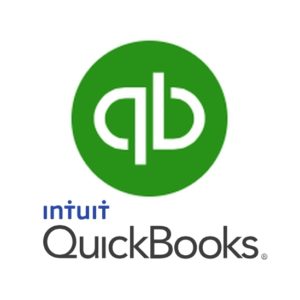No matter how long you have been in the accounting business, recruiting, maintaining and retaining clients is difficult, even with the best of them.
The reasons are long: they are offended by a mistake; they are offered a larger menu of services for a better price; a firm opens closer to their business; a partner they worked with leaves your firm…well, you get the idea. Some reasons small business accounting clients leave are out of your hands. Yet, many others are within your control and can be mitigated if done properly.

Customer service is not an art. However, it’s just smart practice not to take your clients for granted. So, here are Five Ways You Can Treat Your Small Business Accounting Clients Better, so they thrive and you do, too:
- Develop a list of services your client could use: Currently, your clients may have only one service. But, could they benefit from estate planning, tax preparation or Quickbooks services? Also determine what they may not need like tax preparation or a financial advisor. Have a “Client Needs List” with checks and “x’s” on each service you offer. Then send a list to the client of what you can recommend to them with an offer to make an appointment at their convenience. While some may be skeptical that it is a sales tool (which it is, but only partly), most clients will appreciate that you have inquired and may gladly set up a meeting to discuss their small business accounting needs.
- Create and focus on your “Accounting Niche”: Your accounting firm may have a large number of services but which one do your do the best? Do an inventory of your firm and find out where you excel. That service should be the one you market the most to your clients. Once you have determined it, do a survey of your clients. You may even want to do a SWOT Analysis (Strength/Weaknesses/Opportunities/Threats) which will give you an objective report on everything. Once you have determined your strongest service, market it.
- Cultivate your referral sources: Your accounting firm is probably getting referrals from insurance agents, attorneys, bankers, realtors and other financially-related industries. Network often with these resources. Find out if your accounting firm can relate to their clients. Make improvements if you can. (Send them referrals, too. They will remember.)
- Inventory and grade your present clients: Develop an “A-F” grading system for your clients. Look at your entire client base and see if they meet the grade. Determine if any clients are bringing down your firm and are, in fact, a loss or drain on your resources. You will also see who your “star” clients are and who may need more attention than you have been giving them. (Your firm can get a free accounting client grading tool at this link: http://www.aicpa.org/InterestAreas/PrivateCompaniesPracticeSection/QualityServicesDelivery/KeepingUp/Pages/invigorate-the-focus.aspx.)
- Say “Goodbye” to the difficult clients: We all have that difficult client or two on the books who has a tepid relationship with us. Sometimes, in the long run, they are worth keeping. However, in many case, those difficult clients are a massive drain on time and money for your firm. They actually may be taking your time away from your other clients. It becomes necessary for your firm and clients, to let them go. This is not an easy thing to do. It is quite agonizing. But everyone, including the fired clients, benefits. Determine which accounting clients meet the “let-go” criteria and begin the process. You will not regret it.
Retaining clients in these austere, post-recession days requires some homework and time, but it can be done. Follow these steps and see your firm grow.
A.K. Burton, PC cares about all of our clients, whether business or personal. Our experienced and licensed staff can help you, your family and your business make smart tax and investment decisions (https://cpa-maryland.com/services/small-business-services/). Call us at (301) 365-1974 for more information or email us at info@cpa-maryland.com.







 According to www.businessdictionary.com it is a “Systematic examination and verification of a firm’s books of account, transaction records, other relevant documents, and physical inspection of inventory by qualified accountants (called auditors). Quality control: Periodic (usually every six months) onsite-verification (by a certification authority) to ascertain whether or not a documented quality system is being effectively implemented.
According to www.businessdictionary.com it is a “Systematic examination and verification of a firm’s books of account, transaction records, other relevant documents, and physical inspection of inventory by qualified accountants (called auditors). Quality control: Periodic (usually every six months) onsite-verification (by a certification authority) to ascertain whether or not a documented quality system is being effectively implemented.
